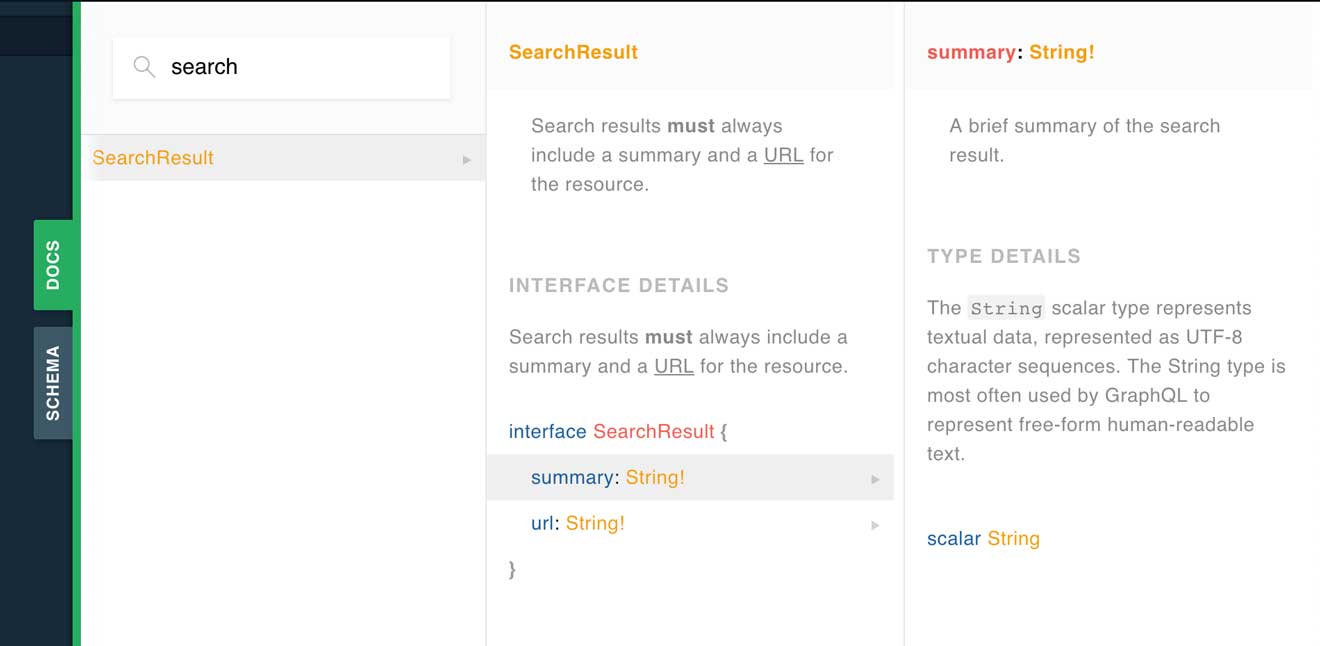Documenting schema
The GraphQL specification includes two features that make documentation and schema exploration easy and powerful. Those features are descriptions and introspection queries.
There is now a rich ecosystem of tools built on top of those features. Some of which include IDE plugins, code generators and interactive API explorers.
GraphQL explorers
Popular GraphQL explorers allow developers and clients to explore the contents of your schema:

Descriptions
The GraphQL schema definition language supports a special description syntax. This allows you to provide additional context and information alongside your type definitions, which will be accessible both to developers and API consumers.
GraphQL descriptions are declared using a format that feels very similar to Python's docstrings:
query = '''
"""
Search results must always include a summary and a URL for the resource.
"""
interface SearchResult {
"A brief summary of the search result."
summary: String!
"The URL for the resource the search result is describing."
url: String!
}
'''
Note that GraphQL descriptions also support Markdown (as specified in CommonMark):
query = '''
"""
Search results **must** always include a summary and a
[URL](https://en.wikipedia.org/wiki/URL) for the resource.
"""
interface SearchResult {
# ...
}
'''
Introspection Queries
The GraphQL specification defines a programmatic way to learn about a server's schema and documentation. This is called introspection.
The Query type in a GraphQL schema includes special introspection fields (prefixed with a double underscore) which allow a user or application to ask for information about the schema itself:
query IntrospectionQuery {
__schema {
types {
kind
name
description
}
}
}
The result of the above query might look like this:
{
"__schema": {
"types": [
{
"kind": "OBJECT",
"name": "Query",
"description": "A simple GraphQL schema which is well described.",
}
]
}
}
Tools like GraphQL Playground use introspection queries internally to provide the live, dynamic experiences they do.
